Let’s Move Together: Supporting Well-being Through Exercise at CAS
Men’s Wellbeing Session with Cartwheel Arts
Men’s Wellbeing Session with Cartwheel Arts
Celebrating the Refugee Week at our Hub
In a world full of complicated problems, it’s easy to forget the simplest truths.
At Caring and Sharing Rochdale, we haven’t just read about injustice. We live in it. We walk beside it. We sit across from it, hold its hand, and try, day in and day out, to remind people that they still matter, even when the system tells them otherwise.
And through it all, one thing keeps showing up, louder and clearer every day: Community might not just be part of the answer. It might be the answer itself.
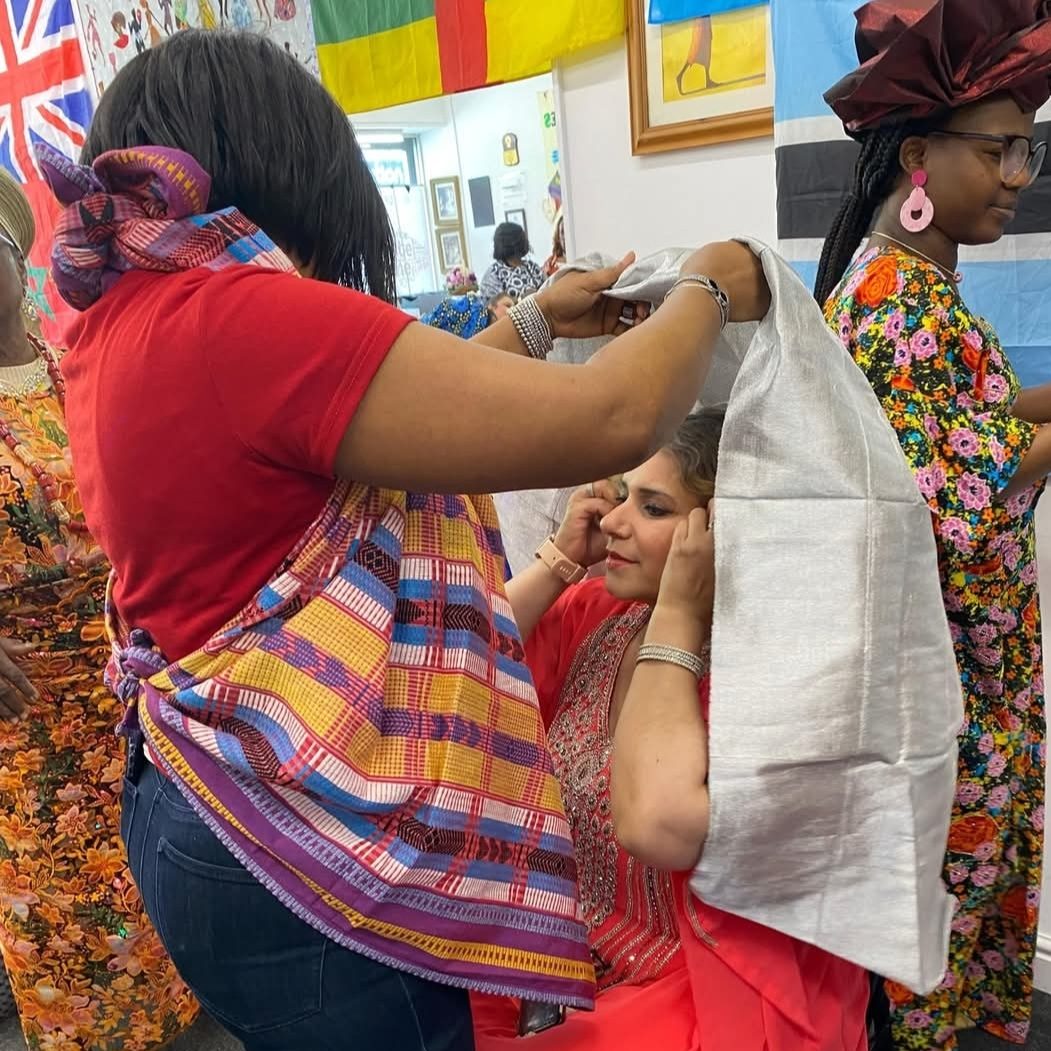
It is Happening Here in Rochdale
Rochdale has always been a place of welcome. A place of grit, resilience, and spirit.
We’ve seen this town hold space for people who’ve lost everything. We’ve seen Rochdale aunties offer up hot meals to women fleeing violence.
We’ve seen grandads, former engineers, teaching newly arrived refugees how to fix bikes or use a computer.
We’ve seen real love, the quiet kind–not loud on social media but deep in action.
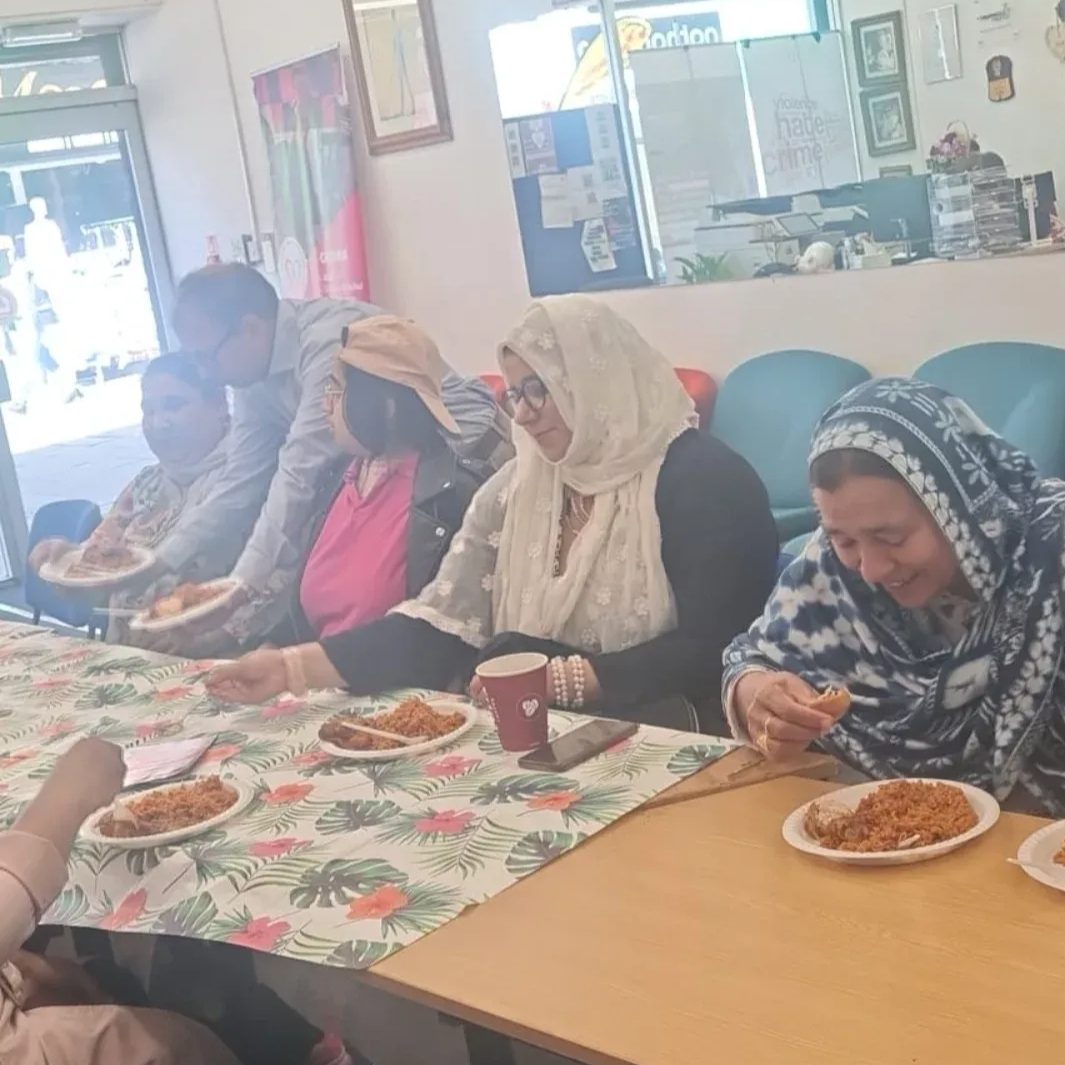
This is what a community looks like. And it’s not charity. It’s solidarity.
The Work Doesn’t Belong to “Us”—It Belongs to All of Us
Here’s the thing: the work we do at Caring and Sharing isn’t for a niche few. It’s not “those people” over there. This is about us–every single one of us. Whether you’re a local business owner, a parent, a student, or a neighbour who just cares.
The world tells us to look away.
We’re saying: lean in. Because if a community is going to heal anyone, it has to be built by everyone.
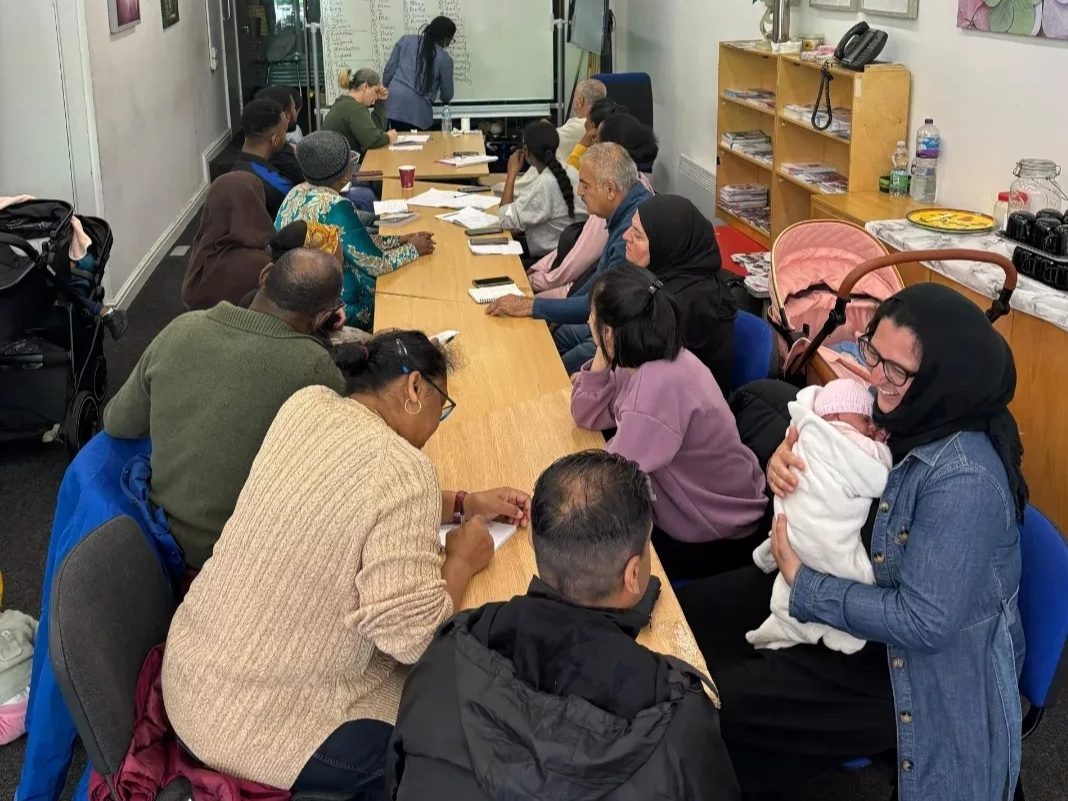
Don’t Just Clap for the Work, Join It
We don’t need more applause. We need more action.
Volunteer. Give your time, not just your opinion.
Speak up when systems fail our neighbours.
Share your skills, your networks, your table.
Create safe spaces—not just in buildings, but in how you treat people.
Let the way you live reflect the world you claim to want.
Rochdale can’t do it alone. And we shouldn’t have to.
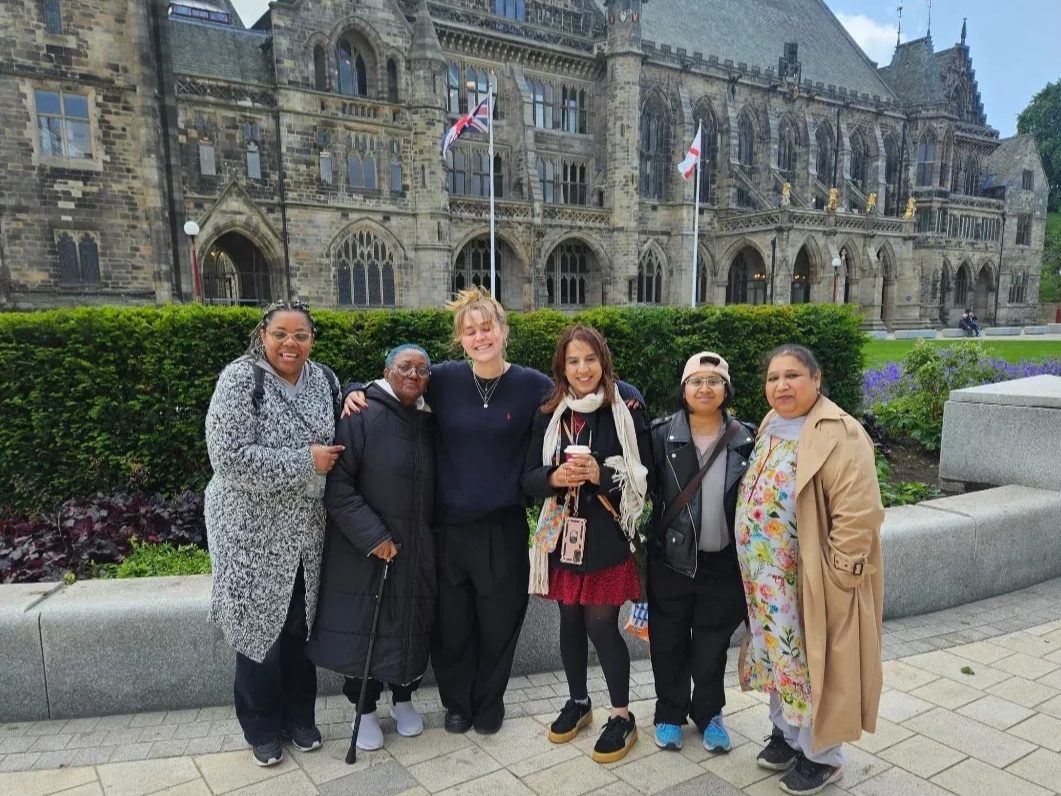
What If Rochdale Is Just the Beginning?
What if the model we’re building here, community by community, block by block, isn’t just local hope, but global proof?
What if every town had Caring and Sharing?
What if governments, schools, and corporations followed the lead of grassroots love and leadership?
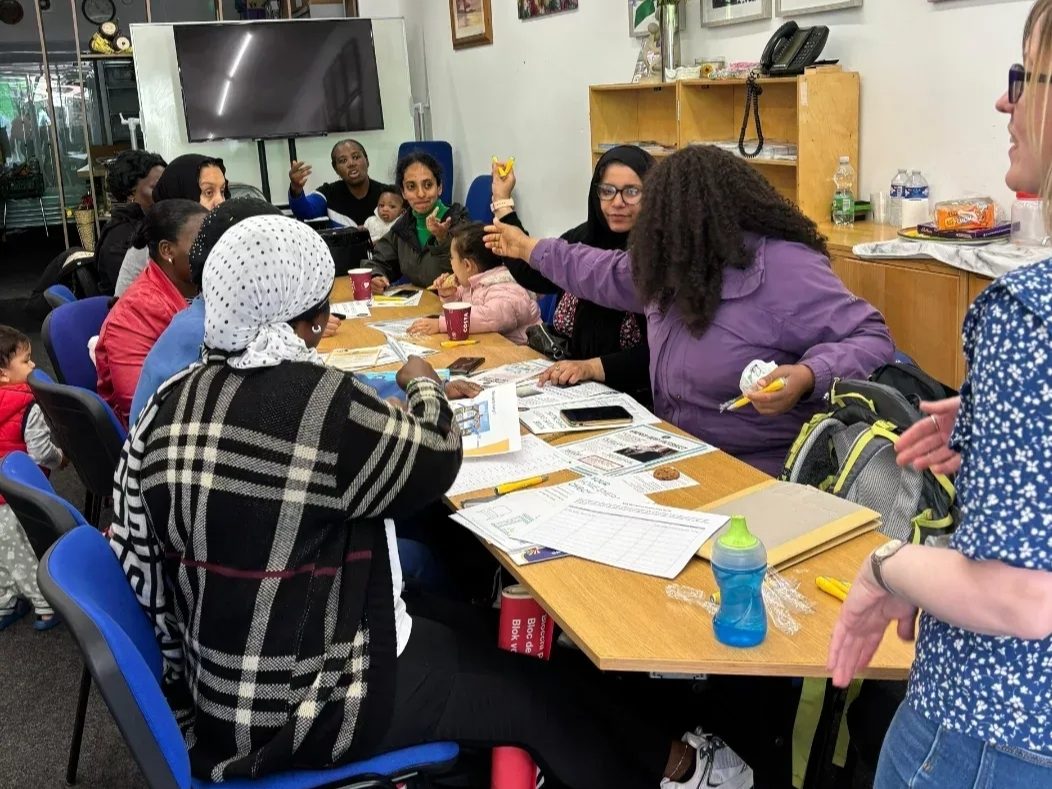
Because if it can work in Rochdale, with all its challenges, all its beauty, all its stubborn, scrappy heart, it can work anywhere. And maybe, just maybe, this is the movement the world has been waiting for.
So Here’s the Real Question:
What role will you play in building the world we keep saying we want?
Because community?
It doesn’t build itself.
We do.
Listening is a love in action.
There’s no community without charity, and there’s no charity without community. This simple truth is what makes community-led initiatives so vital, and why the support of local authorities is not just helpful, but important.
In towns like Rochdale, the heartbeat of the borough lies in the quiet but powerful work of grassroots charities. These organisations, often founded by residents, neighbours, and lived experience leaders, step in where public services fall short: delivering food, tackling mental health crises, supporting asylum seekers, and offering a sense of dignity and belonging.
But these charities don’t thrive on goodwill alone. They require stable support, accessible infrastructure, and meaningful collaboration from local institutions. In short, community-led charities need community-led backing from local authorities.
Here’s how that can happen, and how Rochdale is leading by example:
1. Long-Term, Flexible Funding
Consistent, unrestricted funding allows charities to innovate and grow. Yet, a 2023 NCVO study found that over 60% of UK small charities rely on short-term funding cycles of less than 12 months. In Rochdale, over 30% of voluntary sector organisations report that funding insecurity is their biggest operational barrier. Rochdale Borough Council has taken promising steps through its Community Investment Fund, helping fill that gap by supporting community responses to poverty, youth violence, and cost-of-living challenges.
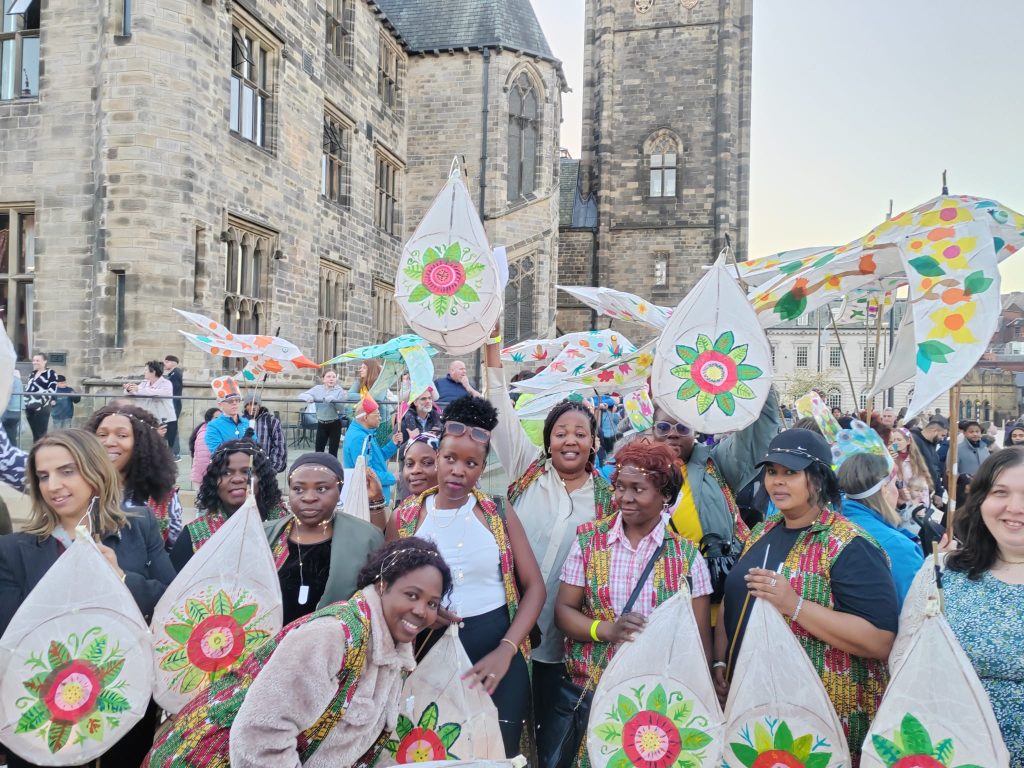
2. Shared Spaces and Infrastructure
Space is power, yet many grassroots groups can’t afford rent or utilities. According to Locality UK, one in four community groups lack access to a stable physical space.
In Rochdale, Rochdale Town Hall has become more than just a civic landmark – it’s increasingly being opened up as a shared, accessible space for the community. Local charities and grassroots groups, including Caring and Sharing Rochdale, have been able to host events, cultural celebrations, and training sessions within its historic halls.
This kind of access to centrally located, trusted public space sends a clear message: the community belongs here. It also provides a dignified setting for initiatives that tackle everything from food insecurity to mental health stigma, proving that local authorities can turn symbolic buildings into platforms for real change.
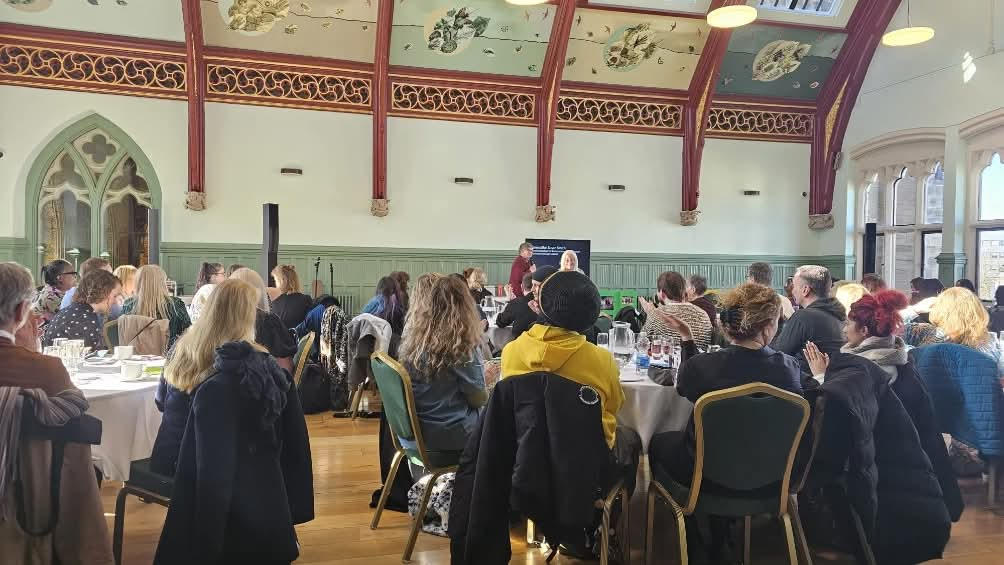
3. Genuine Collaboration, Not Just Consultation
Many charities are invited to conversations, but not to decision making. Only 39% of UK community organisations feel they have meaningful influence on local decisions.
In Rochdale, BHA for Equality is actively changing that. Their work tackles health inequalities by placing lived experience at the heart of public health strategies, especially within Black, Asian, and minoritized communities. Through culturally competent outreach, inclusive research, and advocacy, BHA ensures that marginalised voices shape services, not just receive them.
Caring and Sharing Rochdale proudly collaborates with BHA for Equality, particularly through initiatives like our Women’s Wellness Workshop, which brings together women from underrepresented backgrounds to explore physical and mental health, self-care, and empowerment. This kind of partnership doesn’t just deliver services, it helps shift narratives, build trust, and influence how local systems understand community health.
Together, we prove that when grassroots organisations and equity driven institutions join forces, genuine collaboration becomes a catalyst for lasting change.
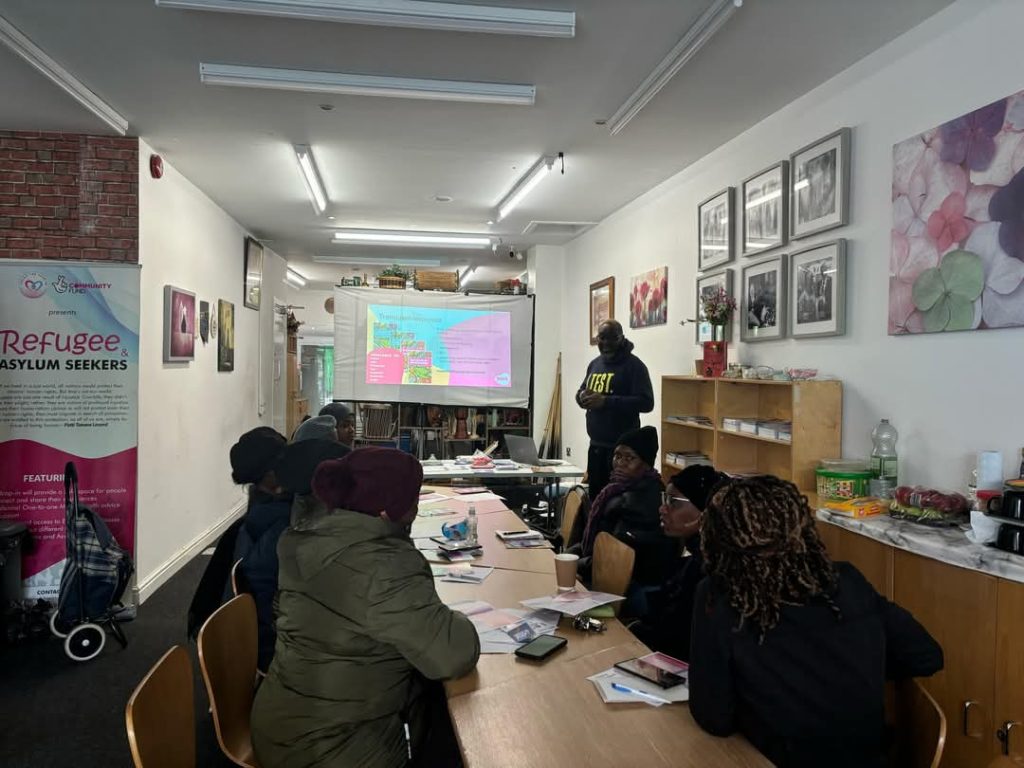
4. Standing Up for Vulnerable Voices
Migrant and asylum seeking communities face extreme challenges, especially with legal access and housing. Greater Manchester is home to over 5,000 asylum seekers, many in precarious situations.
GMIAU (Greater Manchester Immigration Aid Unit) is a lifeline for these residents, offering legal advice and advocacy. In Rochdale, they collaborate with grassroots charities, including Caring and Sharing Rochdale to ensure migrants and asylum seekers have access to culturally aware support, food, mental health guidance, and belonging.
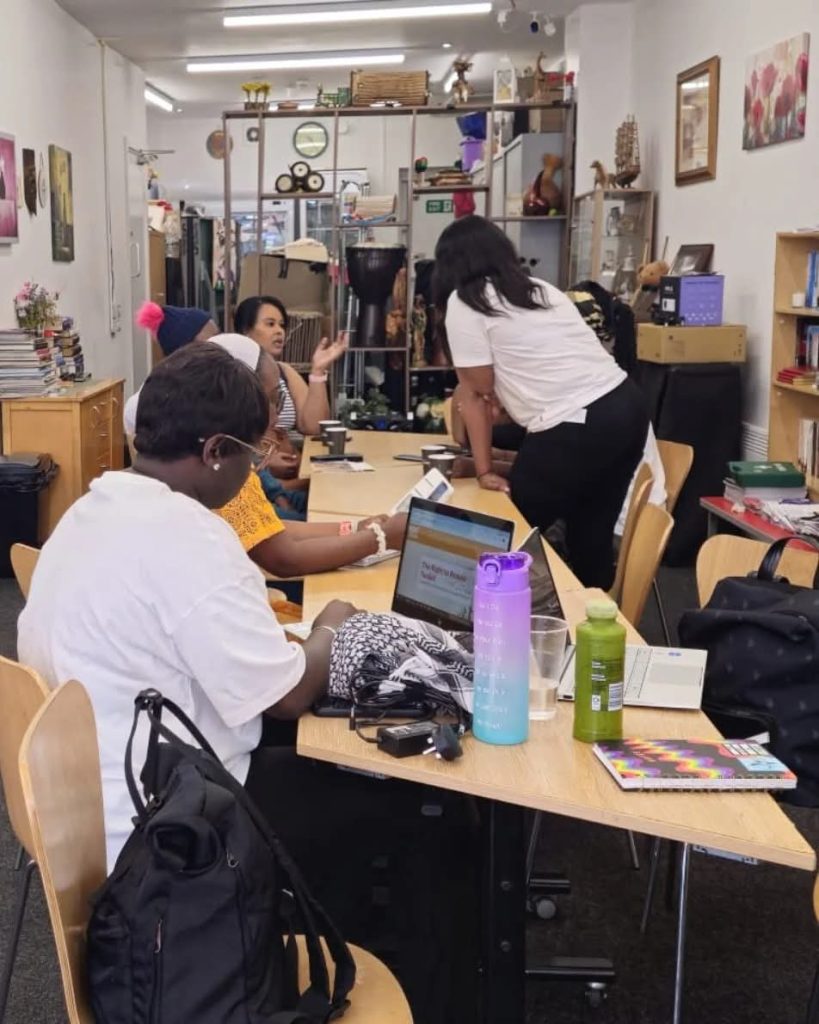
5. Capacity Building and Voice Amplification
In a survey of Greater Manchester charities, 52% said they lacked the skills or staff capacity to apply for funding or run digital campaigns.
That’s where organisations like Caring and Sharing Rochdale shine, not only by offering direct support to people, but also mentoring emerging leaders within marginalised communities. From youth led initiatives to women’s health awareness to empowerment advocacy, we’ve helped amplify under-heard voices across Rochdale. When local authorities collaborate with community rooted organisations like ours, they invest in long-term social infrastructure.
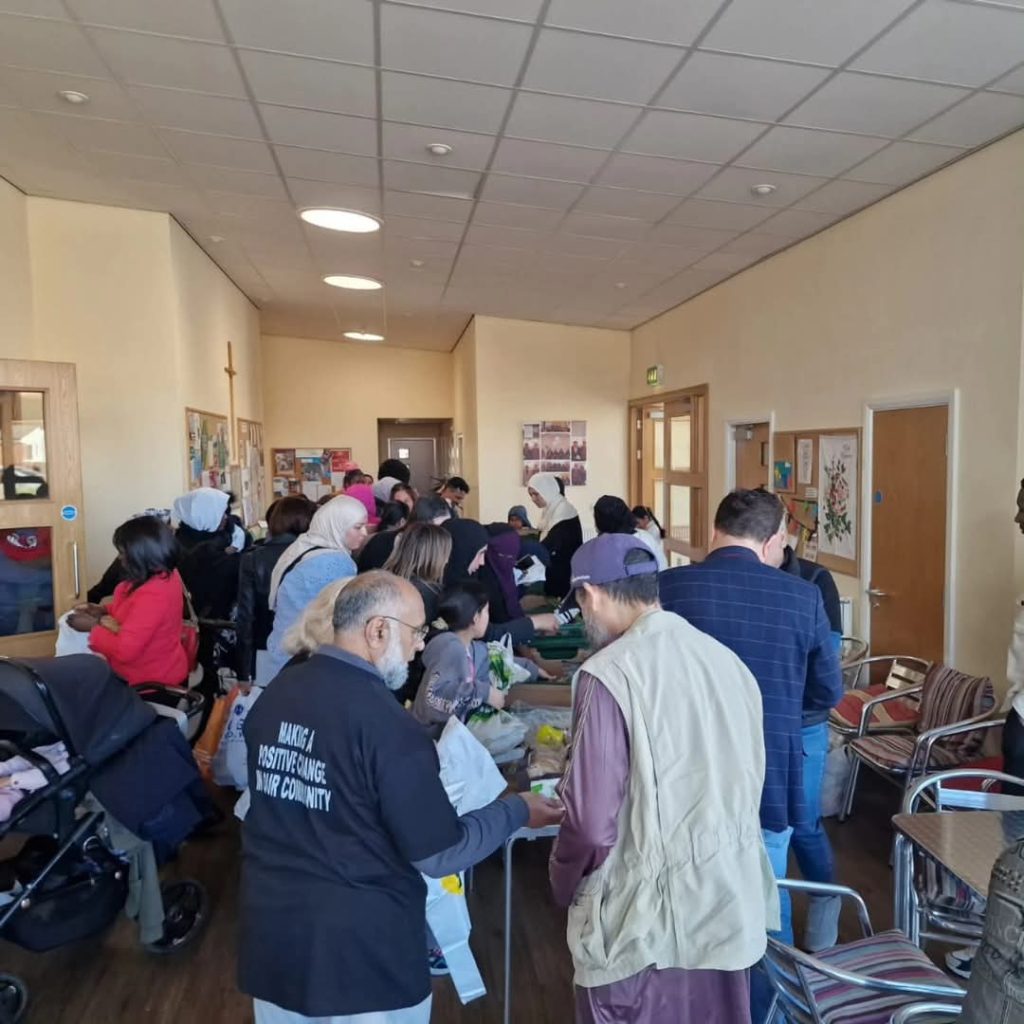
Rochdale as a Model, the World as the Audience
Rochdale, the birthplace of the cooperative movement, continues to lead by example. The collaboration between its council, housing bodies, healthcare champions, legal advocates, and grassroots organisations shows what’s possible when community is not a client, but a co-creator.
Whether in Rochdale or Rio, Nairobi or Newcastle, the message is the same: community-led charities need trust, space, and sustained support.
By learning from Rochdale’s champions – Rochdale Borough Council, Rochdale Town Hall, BHA for Equality, GMIAU, and Caring and Sharing Rochdale, we can all work toward a future where no one is left behind. Because in every town, community is infrastructure, and it’s time we treated it that way.
Rochdale, a vibrant town in the northwest of England, has long been celebrated for its rich cultural diversity. Home to a thriving community of individuals from various ethnic backgrounds, Rochdale embodies the spirit of multiculturalism. However, as with many communities, there can be challenges in bridging the gaps between different cultures.
In recent years, community events have emerged as a powerful tool in fostering greater understanding, tolerance, and unity among Rochdale’s diverse population. From cultural festivals to charity fundraisers, these events have played a vital role in breaking down barriers and promoting cross-cultural exchange.
Rochdale Community Events
The annual Rochdale Festival, for instance, brings together residents from all walks of life to celebrate the town’s rich cultural heritage. With its colorful parade, diverse food stalls, and spectacular performances, the festival provides a unique opportunity for people to connect with one another and experience the beauty of different cultures.
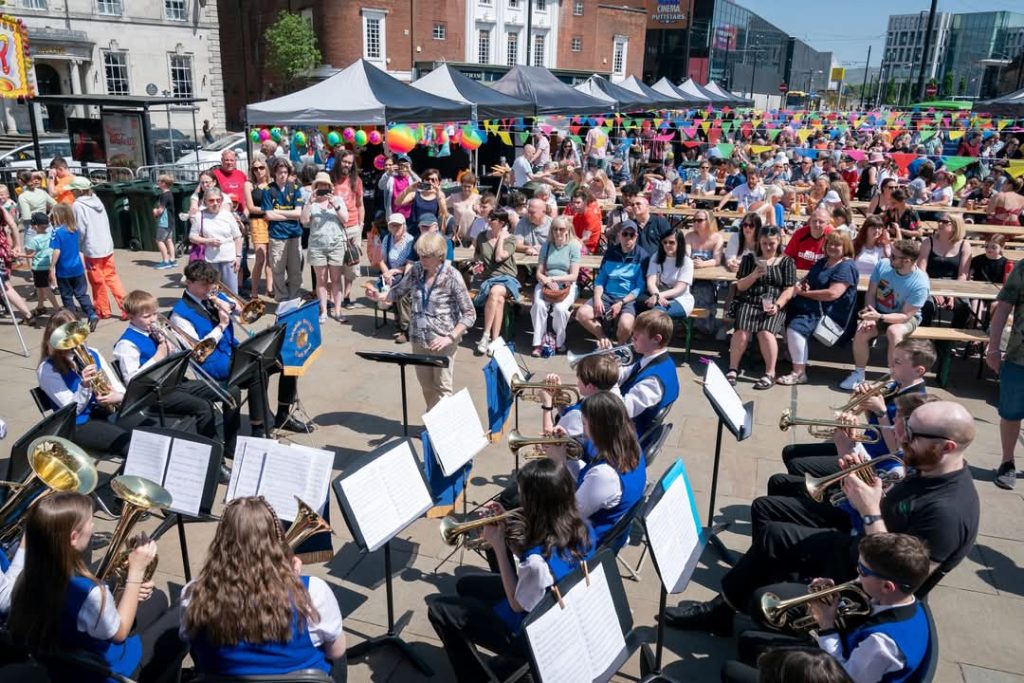
Similarly, local initiatives like the Rochdale Community Market have helped to promote social cohesion by providing a platform for people to share their traditions, customs, and stories. By engaging in meaningful conversations and learning about each other’s backgrounds, residents have been able to build lasting relationships and a deeper appreciation for the diversity that makes Rochdale so special.
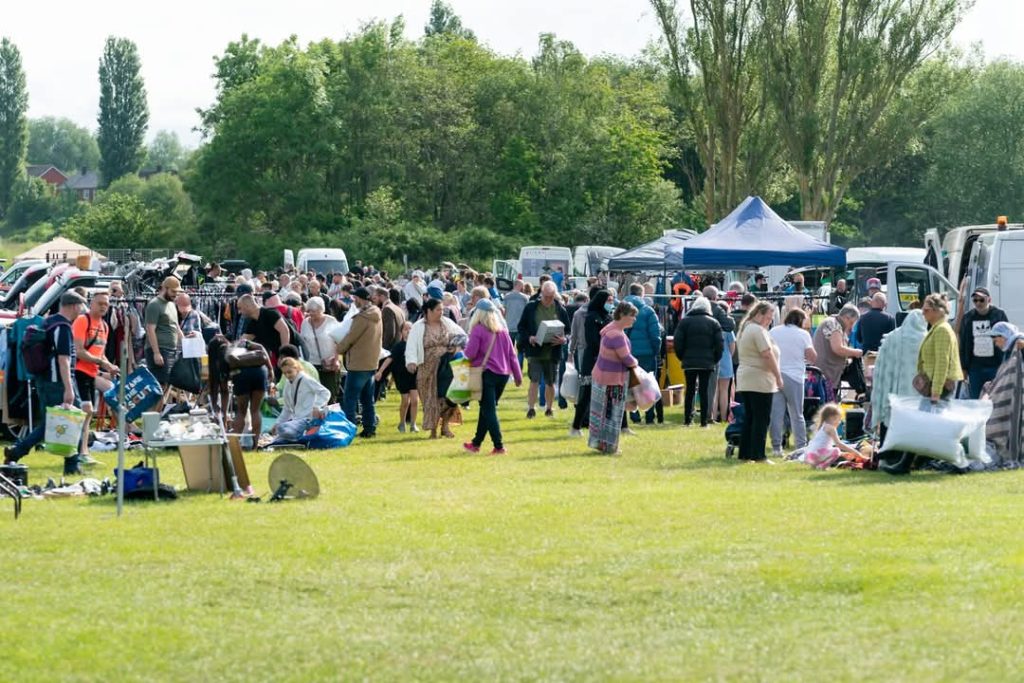
Furthermore, events like our upcoming HAF Easter Children Activities are a major factor in building bridges between cultures. By bringing together children and families from diverse backgrounds, these events foster a sense of community, promote cross cultural understanding, and provide a fun and interactive way for people to connect with one another.
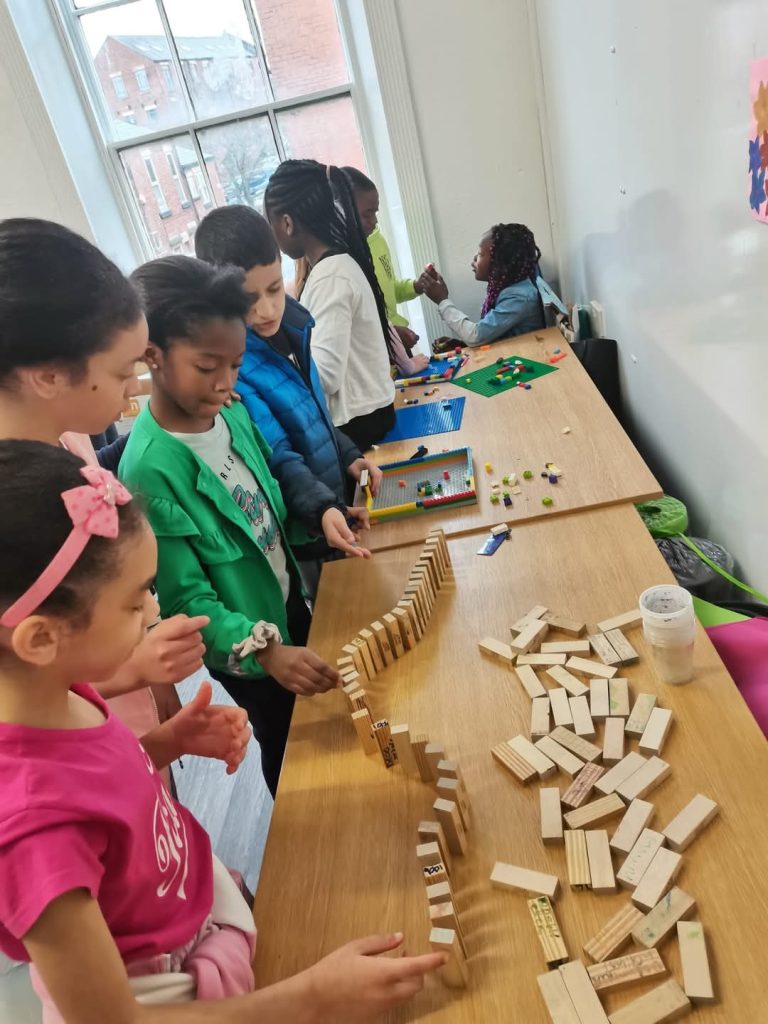
In addition, other notable events have demonstrated the power of community engagement and collaboration. For example:
– The RCBN Conference, which brought together key stakeholders to discuss pressing issues and develop solutions.
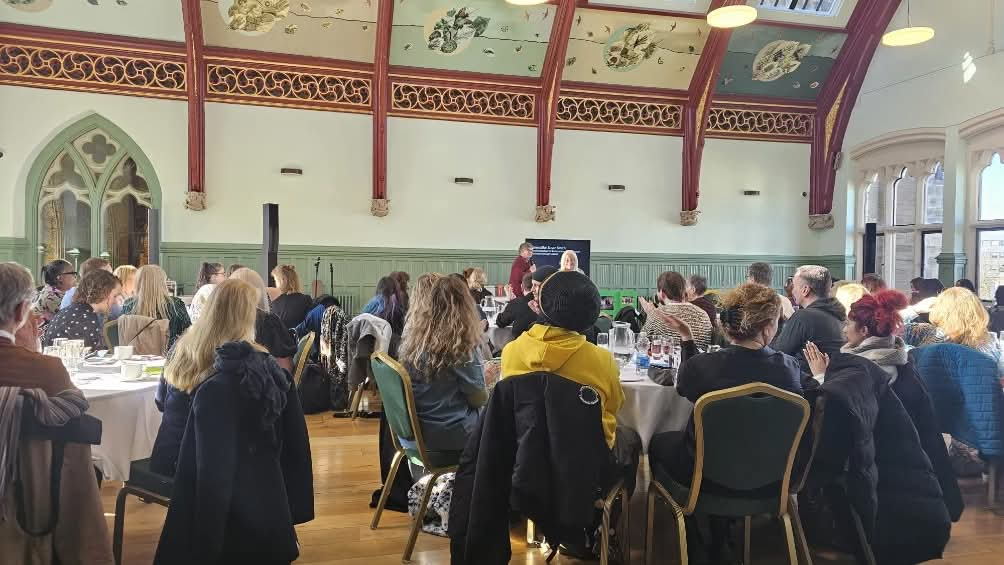
– The Greater Manchester Live Well Event, which gathered over 400 representatives from various Voluntary, Community, and Social Enterprise (VCFSE) organizations, local authorities, NHS, and funders. This event showcased the importance of collaboration and collective action in driving positive change.
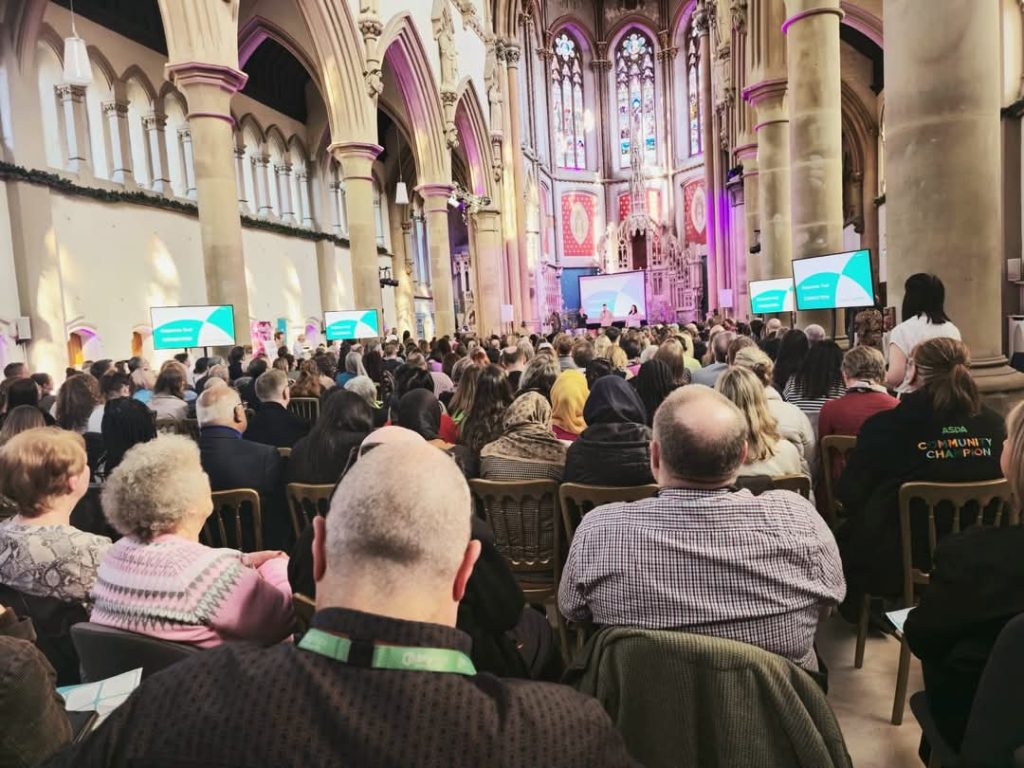
Many more events have contributed to the rich diversity of community life in Rochdale, each playing a vital role in fostering greater understanding, tolerance, and unity.
However, the impact of community events in bridging cultural divides is not unique to Rochdale. Across the UK and around the world, such events have proven to be a key facilitator for social change.
In cities like London, Birmingham, and Manchester, community events have helped to foster greater understanding and cooperation among diverse communities. From cultural festivals to interfaith dialogues, these events have played a vital role in promoting social solidarity and challenging prejudices.
Globally, community events have also been instrumental in promoting cross cultural exchange and understanding. In countries like Canada, Australia, and the United States, events like cultural festivals, food fairs, and community markets have helped to bring people together and celebrate their differences.
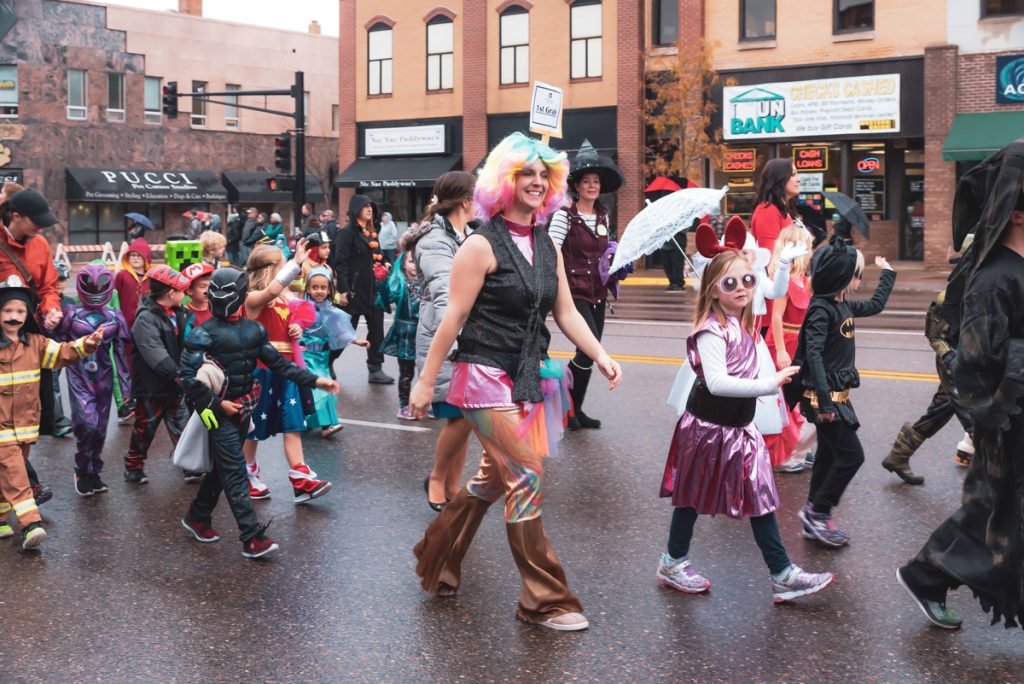
In conclusion, community events have proven to be a powerful tool in building bridges between cultures. By providing a platform for people to come together, share their experiences, and learn from one another, these events have helped to promote greater understanding, tolerance, and unity. As we move forward in an increasingly interdependent world, the importance of community events in promoting social unity and celebrating diversity cannot be overemphasized.
Rochdale, a town in Greater Manchester, UK, is home to a diverse community, including a significant Black, Asian, and Minority Ethnic (BAME) population. Yet, many BAME individuals still face barriers to accessing community support services. The lack of representation is evident even in academia, where just 160 out of 22,855 professors in the UK were Black in 2020/21, and only 41 were Black women, making up less than 1%. Representation matters. This blog explores the vital role of BAME-led community support in Rochdale and how it can help break down barriers and build a more inclusive community.
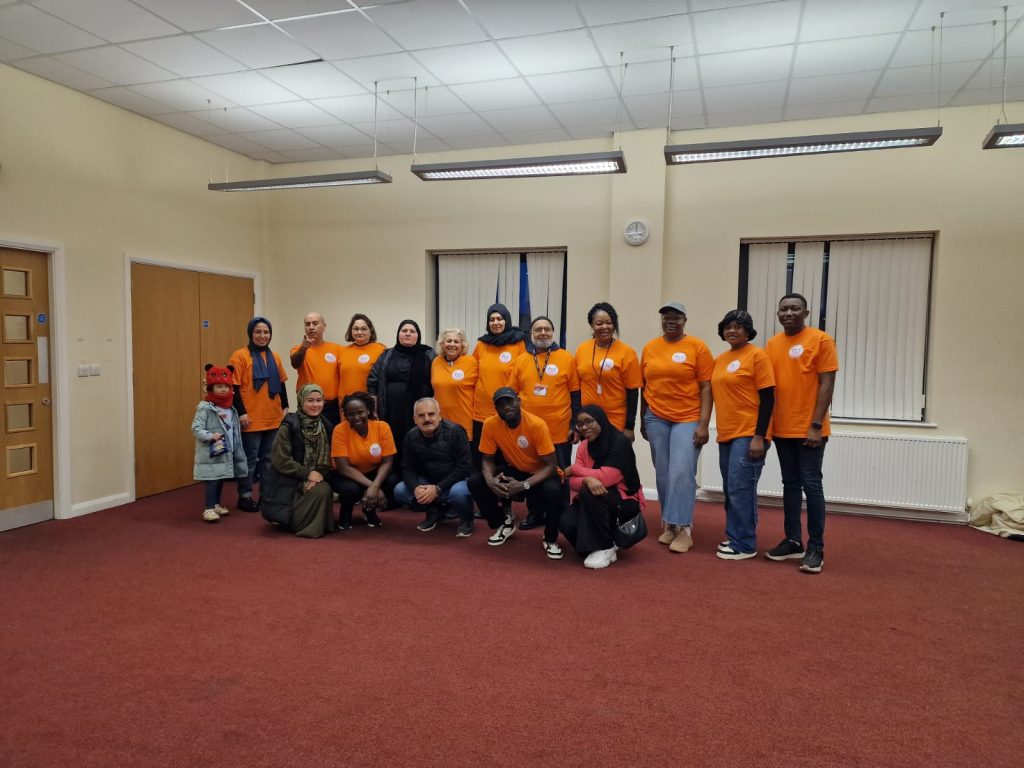
The Importance of Representation
A 2022 study by McKinsey & Company and LeanIn.org, analyzing 333 companies and over 40,000 employees, found that BME women are the least likely to be promoted or considered for opportunities by management. Representation matters because it allows individuals to see themselves reflected in the services and organizations that serve them. When BAME individuals are represented in leadership positions or as service providers, it sends a powerful message that their experiences, perspectives, and needs are valued and understood. This, in turn, can increase trust, engagement, and outcomes for BAME communities.
The Rochdale Community
Rochdale has a strong tradition of community activism and social change. Yet, BAME communities continue to face significant challenges, including poverty, unemployment, and poor health outcomes. In 2020, the Social Metrics Commission reported that 46% of people in Black-led households lived in poverty, more than double the rate for White-led households (19%). Similarly, a 2022 Runnymede Trust analysis found that BME individuals are 2.5 times more likely to experience relative poverty and 2.2 times more likely to live in deep poverty.
BAME-led community support services are essential in tackling these disparities, offering culturally sensitive and responsive support tailored to the unique needs of these communities.
Our Work at Caring and Sharing Rochdale
At Caring and Sharing Rochdale, we’re committed to standing with vulnerable individuals, with a particular focus on Migrants, Refugees, and Asylum Seekers within the BAME community. Our services are designed to provide a supportive ecosystem, promoting overall well being and empowerment. Here are some of the initiatives we’ve developed to support vulnerable individuals:
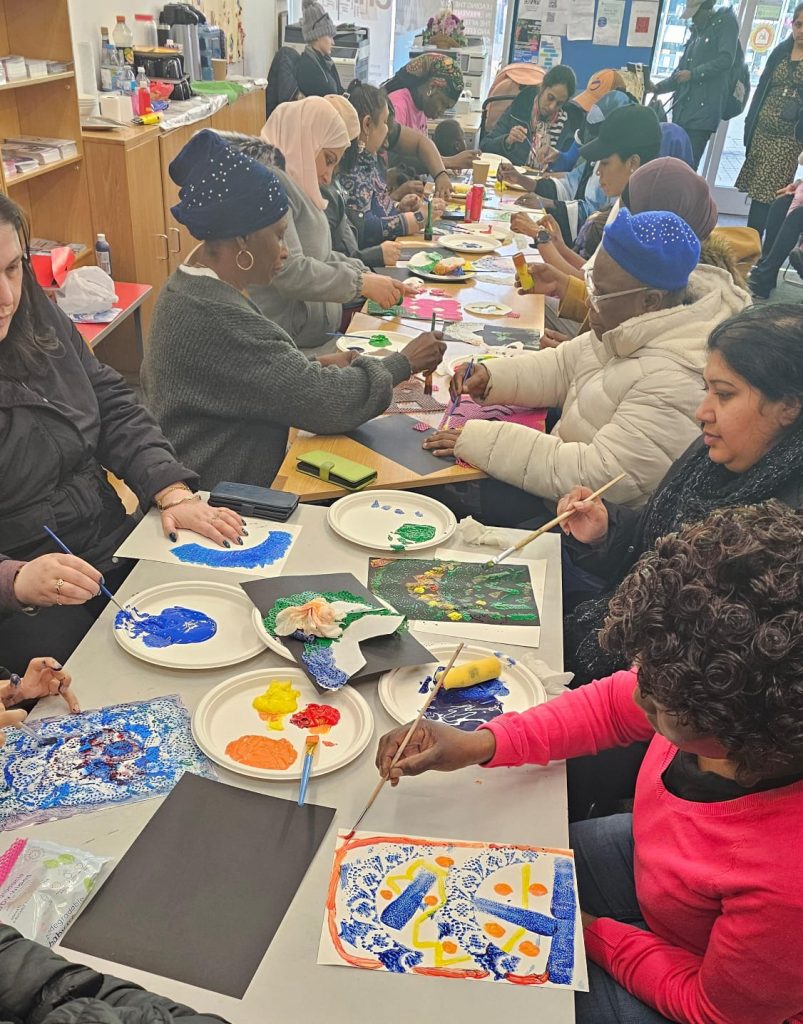
The Impact of Our Work
Our initiatives have a tangible impact on the lives of vulnerable individuals in our community. By providing culturally sensitive and responsive support, we’re helping to:

Conclusion
Representation matters in BAME-led community support in Rochdale. By promoting representation and inclusivity, we can break down barriers and foster a more inclusive community. At Caring and Sharing Rochdale, we’re committed to standing with vulnerable individuals and providing adequate support to promote overall well being and empowerment. Together, we can create a more just and equitable society for all.
Get Involved
If you’re passionate about creating a more inclusive community and supporting vulnerable individuals, we invite you to get involved with Caring and Sharing Rochdale. Here are some ways you can make a difference:
Together, we can break down barriers and build a more inclusive community for all.
The cost of living crisis is hitting marginalized communities in Rochdale hard. While this is a global issue, the experiences in Rochdale highlight the urgent need for action, particularly in areas already facing systemic inequality. The financial strain caused by rising costs is deepening existing vulnerabilities, and without intervention, the impact will only worsen.
Decades of systemic inequality have left marginalized communities in Rochdale vulnerable to economic fluctuations. The cost of living crisis has worsened these existing imbalances:

i. Food poverty: Families struggle to access basic necessities like food, leading to widespread hunger and malnutrition. Between April 2022 and March 2023, 14,683 food parcels were given out in Rochdale, a 47% increase from the previous year (Trussell Trust).
ii. Housing insecurity: Rising rents and evictions leave many without a roof, forcing them into overcrowded and unhealthy living shelters. In Rochdale, 34.6% of households live in poverty, compared to the national average of 22.8% (End Child Poverty Coalition, 2022).
iii. Mental health crisis: Poverty’s stress and anxiety take a devastating toll on mental health, with many struggling to access support services. A staggering 75% of people in Rochdale experiencing mental health issues report worsened mental health due to financial difficulties (Rochdale Borough Council’s Poverty Reduction Strategy, 2022).
v. Loss of hope: As opportunities decrease and hardships mount, marginalized communities lose faith in building a better future.
Behind the statistics, real people struggle to survive in Rochdale. Single mothers work multiple jobs, only to find themselves unable to afford basic necessities. Families choose between heating homes or feeding children. The elderly struggle to access essential healthcare due to crippling costs.
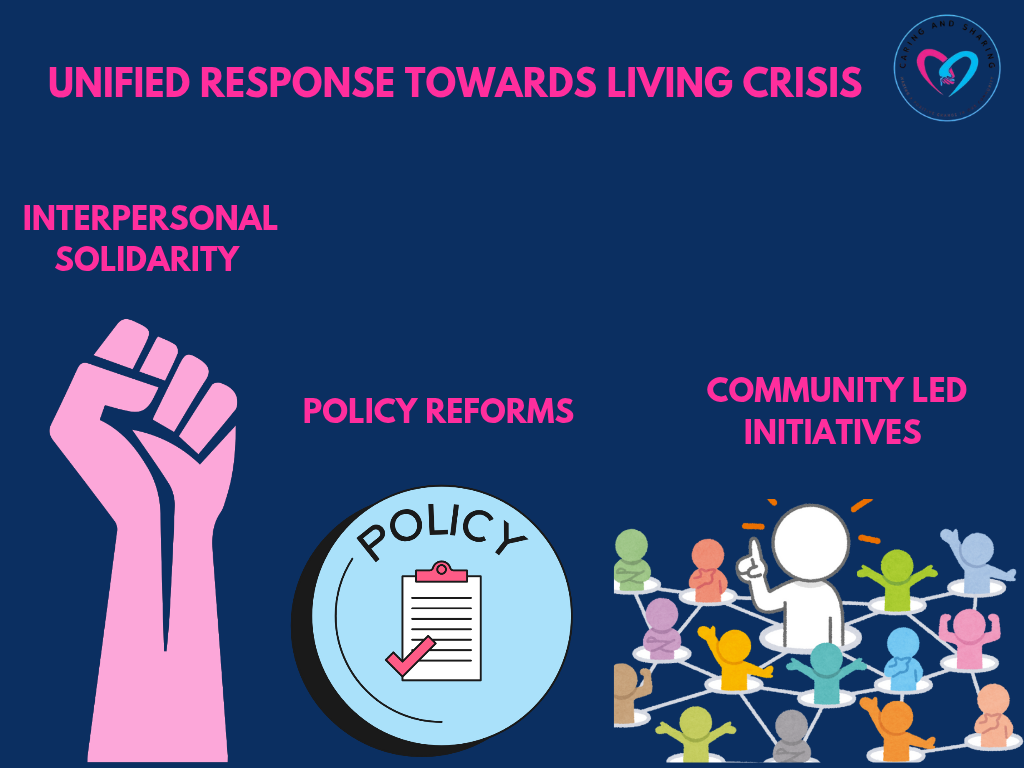
These stories demand urgent action. The cost of living crisis requires a unified response:
i. Policy reforms: Implement policies addressing inequality’s root causes, such as affordable housing, living wages, and accessible education.
ii. Community led initiatives: Support grassroots organizations providing essential services and advocating for marginalized communities.
iii. Interpersonal solidarity: Foster empathy and understanding by sharing marginalized communities’ stories and struggles.
Reclaiming Hope, Rebuilding Futures
The cost of living crisis reminds us of the work remaining. By acknowledging complexities and working together, we can:
i. Amplify marginalized voices: Center their stories in policy discussions and public discourse.
ii. Foster inclusive recovery: Prioritize marginalized communities’ needs in economic recovery efforts.
iii. Rebuild with equity: Create a just and equitable society where everyone accesses resources and opportunities.
Rochdale’s struggles are a reflection of larger, global issues. By recognizing and addressing these challenges, we can work towards creating a just and equitable society. Share the stories of those in Rochdale to amplify marginalized voices everywhere and work towards a more just society. Together, we can rebuild hope and create a brighter future for marginalized communities in Rochdale and beyond.

When we think of community, we often picture friendly neighbors, vibrant festivals, and shared celebrations. But community is much more than that. It’s a lifeline, a support system that uplifts its members in times of need, and a beacon of hope for those facing challenges. Today, let’s discover the transformative power of community support and explore how it can make a world of difference in our lives.
Community support is about coming together, not just in good times, but especially in moments of hardship. It’s the comforting embrace of a neighbor, the reassuring words of a friend, and the collective strength of a united group. As Helen Keller once said, “Alone we can do so little; together we can do so much.”
The power of community support extends beyond individual stories. It creates a ripple effect that touches everyone within the community. When we help others, we inspire them to do the same. This chain reaction of kindness and support strengthens the fabric of our society, making it more resilient and compassionate. As the African proverb goes, “If you want to go fast, go alone. If you want to go far, go together.”

In times of crisis, community support can also be a powerful healer. Whether it’s through organized support groups, community centers, or even informal gatherings, these connections provide a safe space for individuals to share their experiences, seek advice, and find solace. Mental health is significantly enhanced by the sense of belonging and understanding that community support offers.
Here are a few ways you can actively engage with your community:
In a world that often feels divided, community support reminds us of our shared humanity. It shows us that together, we can weather any storm and emerge stronger. Let’s celebrate the power of community by actively participating, supporting, and uplifting each other. After all, as Margaret Mead beautifully put it, “Never doubt that a small group of thoughtful, committed citizens can change the world; indeed, it’s the only thing that ever has.”
Let’s get a bit scientific—have you ever heard of the term “symbiosis”?
In biology, symbiosis refers to a close, long-term relationship between different species where one or both parties benefit, and neither is harmed.
Now, let’s step out of the lecture hall for a moment and consider this: Have you ever felt that warm, fulfilling rush after helping an elderly person cross the road, giving a heartfelt compliment, or offering a small act of kindness?
If yes, then you’ve already tasted the magic we’re about to explore!
This article will uncover four powerful ways philanthropy can help you achieve mental and emotional balance.

Philanthropy encourages you to shift focus from your challenges to the needs of others. This perspective helps cultivate gratitude as you begin to appreciate your own life more deeply. By witnessing the struggles and resilience of others, you’ll often realize that your problems may be smaller than they seem—or just a different piece of the iceberg.
Ever noticed how empowering it feels to make a difference? Helping others, even in small ways, can remind you of your strengths and reveal new abilities. It’s like discovering your inner superhero—you don’t need a cape to save someone’s day!
Volunteering or supporting a cause builds your sense of purpose and worth, leaving you with a renewed confidence that ripples into every aspect of your life.
Philanthropy connects people. By volunteering or supporting causes, you engage with like-minded individuals from diverse backgrounds, creating bonds that transcend cultures and break social barriers. These interactions not only enrich your life but also foster a sense of belonging and strengthen community ties.

Giving to others can open your heart in unexpected ways. Acts of kindness often nurture empathy, which can help you release grudges, let go of past hurts, and embrace forgiveness. By focusing on uplifting others, you may find yourself shedding the emotional weights you’ve been carrying.
While philanthropy is often seen as selfless, it’s also deeply transformative for the giver. By embracing philanthropy, you can nurture gratitude, boost your confidence, build social connections, and experience emotional healing.
Start small, and let your heart lead the way—you’ll soon discover that giving is as much a gift to yourself as it is to others.
Have you experienced the positive impacts of philanthropy? We’d love to hear your story—share it with us and inspire someone today!, it can still be a fulfilling and transformative journey—one that benefits both the giver and the receiver.